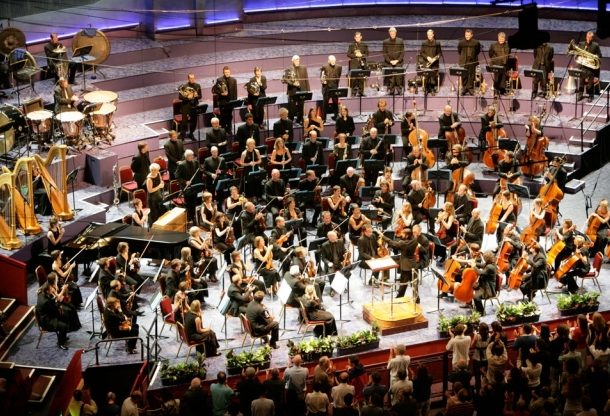Watch an extract of their work from Sept 10:
Showing @ The Music Hall, Aberdeen: 11 Mar
Edward Elgar’s Cello Concerto is something of a problem piece. Mention it in polite company and the name Jacqueline du Pré will almost certainly crop up. The twenty-year-old Du Pré made a recording of the concerto back in 1965, which is generally seen as the benchmark performance. So the question was how would the cosmopolitan mix of German-Canadian cellist Johannes Moser, American conductor Andrew Litton and the BBC Scottish Symphony Orchestra approach this quintessentially ‘English’ piece?
Not in the heart-on-sleeve, fully immersed style of Du Pré, that’s for sure. Nor the noble manner called for by Elgar. Here, initially, was something detached, aloof, almost deliberately cold. However, after the seemingly directionless opening movement, things improved dramatically, with a smiling Moser and Litton gaining a rapport in the quicksilver second movement and soulful Adagio. Yet it was only in the final movement that the soloist managed to find his way to the emotional core of this deeply felt masterpiece.
After the interval, from a late work by one composer to the first symphony of another; Jean Sibelius threw all his skills at his Symphony No.1, composed between 1898 and 1900 when he was in his mid-30s. A great performance of this piece becomes an almost physical experience, the listener on occasion seeming to be lifted to high mountain peaks before being thrown into the abyss below. Once again, this was a performance that grew in stature as it progressed. Despite a sublime opening clarinet solo over timpani and some fantastically slippery string playing, the performance languished before Litton galvanised the BBC SSO in the final movement.
